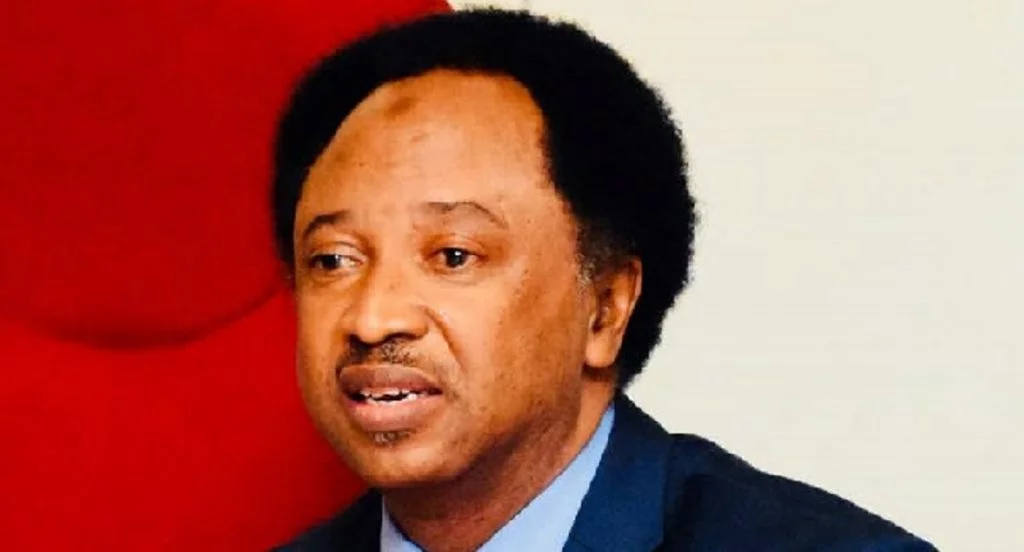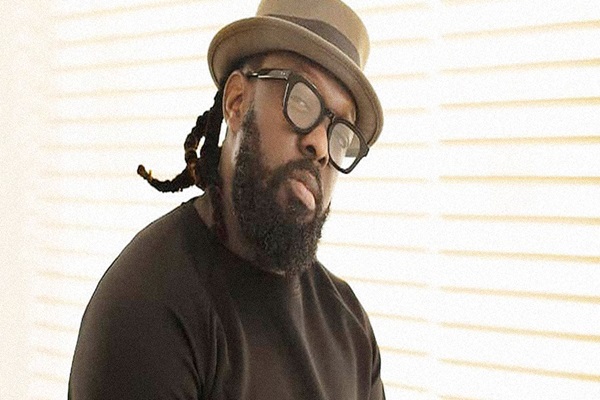News
World Food Safety Day: CSOs Demand Total Ban On GMOs

Civil society organisations have called in the Federal Government to place a moratorium or total ban on the use of genetically modified organisms (GMOs) and their products in Nigeria.
The call was jointly made by Health of Mother Earth Foundation, Environmental Rights Action/Friends of the Earth Nigeria, and the GMO-free Nigeria Alliance during a zoom press briefing as part of activities to mark the 2025 World Food Safety Day which is held 11 June of every year.
Speaking on the sub-topic: Science Needs Caution, the Executive Director, HOMEF, Dr Nnimmo Bassey, stated that a moratorium on GMOs, including a nullification of previous permits and approvals, was critical because GMOs are designed not to address food insecurity but to consolidate control of the food and farming system in the hands of a few corporations/seed industries.
Bassey, who raised the alarm that there is a calculated attack on Nigeria’s food sovereignty, said those who promote GMO do not care about people’s health rather all they are interested in is the profit.
The ED, while noting that the idea behind GMOs is not to solve the problem of hunger, said GMOs are tools of colonialism and aimed at promoting monoculture.
READ ALSO: HOMEF Sympathizes With Niger Flood Victims, Charges Government To Be Proactive
“When you bring in a system that destroys biodiversity, what you are promoting is hunger. Nature has given us crops that are useful to our body, so GMOs do not solve the problem of hunger” he noted.
He continued: “This is known by the patent rights enforced on the products, which prohibit farmers from saving, sharing or replanting the seeds. Even those without the patent restrictions, when replanted, yield poorly.
“This is a calculated attack on Nigeria’s food sovereignty and must be seen as such.
“Seed saving and sharing is an age-long culture in Nigeria, where farming is about 80% informal, with farmers being able to select and improve seeds using traditional methods and being able to exchange the same.
“It is worthy of note that the Cotton Farmers’ Association of Nigeria in 2024 noted that in about 3 years since they were given the Bt Cotton to plant, they haven’t recorded any significant increase in yields compared to the indigenous varieties; instead they have observed that their soils become unproductive after they planted the genetically modified cotton” Dr Bassey explained.
READ ALSO: World Ocean Day: HOMEF Wants An End To Human’s Exploitative Relationship With The Ocean
Also speaking on the sub-topic: ‘Undeniable Dangers of GMO, Dr. Ifeanyi Casimir, a molecular biologist and researcher, noted that there is no evidence of long-term risk assessment conducted by the government on the health impact of GMOs.
According to him, several studies link theconsumption of GMOs to diverse health disorders, including immune system dysregulation, increased allergic responses, chronic inflammation and organ toxicity, as well as tumour development.
Dr Casmir also noted that studies have found Bt toxins (Cry1Ab) in 93% of pregnant women and 80% of fetal cord blood, raising risks of birth defects, cancer, and allergies.
“The fact that our regulatory agency -the National Biosafety Management Agency (NBMA) cannot show any evidence of independent and extensive risk assessment conducted shows irresponsibility and lack of concern for public health”. He concluded.
Tatfeng Mirabeau, a Professor of Medical Microbiology and Immunology, who spoke on the sub-topic: Undeniable Risks Associated with GOMs (Health and Environment) noted: “Another critical reason why Nigeria should hold the brakes on GMOs is the impact on the environment. Bt Crops, for example, the Bt beans that were approved for commercial release in 2019 and 2024, respectively, contain proteins that, when released into the soil, destroy soil microorganisms, leading to soil degradation and reduced fertility.
READ ALSO: Food Crisis: HOMEF, GMOs-Free Nigeria Train Abuja Farmers, CSOs, Others On Agroecology
“There have been reported cases of pest resistance leading to the development of super bugs and super weeds in the case of the herbicide-tolerant GMOs, which make up about 80% of all GMOs globally. The herbicides designed mostly by the same companies producing the seeds have been shown by studies to destroy not just the target weeds but also beneficial organisms in the ecosystem, including bees. GMOs pose a critical risk of genetic contamination of indigenous seed varieties owing to gene transfer.
“For this reason, Mexico and a host of other countries have placed a total or partial ban on GMOs. We cannot
overlook such a grave threat to our plant genetic resources especially as such contamination is irreversible.”
Barr. Mariann Bassey-Orovwuje, ERA’s Deputy Executive Director, while speaking on the sub-topic: ‘Regulatory Oversight and Alternative,’ noted that Nigeria, currently does not have a policy on open market labelling and as such, the public does not have the right of choice as to whether or not to consume GMOs.
This, according to her, negates people’s right of choice and the right to safe food.
Barr. Orovwuje further noted that there are fundamental flaws with the current Biosafety Regulatory Agency, stressing that there is no provision on strict liability, which should ensure that the holder of a permit for any GM product takes responsibility for any negative effects that will ensue.
“Another major flaw in the National Biosafety Management Agency Act is the lack of attention to the Precautionary Principle, which simply advises a halt on any process where there are threats to health or environmental impacts from the use of GMOs,” she said.
She continued: “Nigeria needs to critically address waste, which accounts for about 40% of the food produced. In the same vein, Nigeria needs to critically address issues of insecurity/banditry that keep many farmers away from their farms, leading to reduced productivity.”
News
Trump’s Airstrikes: Halt Military Cooperation With US Immediately – Sheikh Gumi Tells Tinubu Govt

Islamic cleric, Sheikh Ahmad Gumi has called on the Federal Government to immediately halt all military cooperation with the United States following reported US airstrikes.
Gumi warned that American involvement could worsen Nigeria’s security challenges and undermine national sovereignty.
Gumi made the call in a statement posted on his Facebook page on Friday.
He said while Islam permits the fight against terrorism, such actions should only be carried out by what he described as “clean hands,” arguing that the United States lacks the moral authority to lead such efforts because of its global military record.
READ ALSO:US Dept Of War Shares Video Of Air Strikes In Nigeria
According to the cleric, Nigeria made a mistake by allowing foreign powers to play a role in its counterterrorism operations, insisting that “terrorists do not truly fight terrorists” and that such interventions often result in civilian casualties and hidden political motives.
Gumi warned that allowing Nigeria to become a theatre of war would attract anti-US forces into the country, further destabilising it.
He also cautioned that US involvement, particularly under claims of protecting Christians, could polarise the country along religious lines.
READ ALSO:Trump To Attend FIFA World Cup Finals Draw On Friday
The cleric further argued that airstrikes alone cannot defeat terrorism, stressing that effective counterterrorism requires strong ground operations, which he said Nigeria has enough personnel to carry out if properly organised.
“This is the mistake Nigeria has made. Terrorists don’t fight terrorists in truth; they may only kill innocent people and have ulterior motives behind the drama of fighting ‘terror’.
“As a principle, no nation should allow its land to be a theater of war. And no nation should allow its neighbors to be their enemies.
“If Nigeria wants military assistance, China, Turkey, and Pakistan can do the job effectively,” part of his statement reads.
News
Shehu Sani Reacts To Trump’s Military Strikes In Nigeria

Former lawmaker, senator Shehu Sani, has reacted to reports of United States military strikes on terrorist targets in Nigeria’s North-West, saying foreign powers cannot permanently handle the country’s security challenges.
Sani made the remarks on Friday via his X handle while responding to a post by the United States Africa Command, AFRICOM, which indicated that the strikes were carried out in coordination with Nigerian authorities.
According to him, if the reported strikes were indeed a joint operation with Nigerian security agencies, then such action was justifiable, given the threat posed by terrorist groups in the region.
READ ALSO:US Dept Of War Shares Video Of Air Strikes In Nigeria
He described terrorists operating in parts of northern Nigeria as “cancerous cells,” stressing that they survive through violence and should be confronted decisively.
Sani also dismissed narratives suggesting that terrorist attacks target only one religious group, describing such claims as false and misleading.
He said: “If actually, the military strikes against the terrorists targets in the North Western part of Nigeria were a joint operation with the ‘Nigerian Authorities’ as posted by the US AFRICOM on their verified X handle, then it’s a conscionable action.
READ ALSO:JUST IN: US Forces Bomb Terrorists Camps In Nigeria
“Terrorists have become cancerous cells in our part of the country.They live by the sword.The narrative that the evil terrorists only targets one faith, remains absolutely false and misleading.
“Again, the ultimate security and peace in our country lies with ourselves and not with the US or any foreign power. They can complimentarily or unilaterally strike, but they can’t eternally fight our battles.”
News
UKWU! Timaya Falls On Stage While Trying To Lift Plus-sized Woman During Performance [VIDEO]

Nigerian singer, Timaya fell on stage while trying to lift a plus-sized lady during performance.
The incident occurred during his ‘Ukwu’ performance at the Gbaramatu Christmas Carnival in Delta State.
READ ALSO:Saboteurs Against Presidential Amnesty Reforms – General Ndiomu
Timaya in a now trending video on social media collapsed after the plus-sized woman jumped on him midday into his performance.
The singer later got up and continued his performance amid cheers from the crowd.
Watch video here
https://x.com/hypetribeng/status/2004263337572684157?s=20

 News4 days ago
News4 days agoPHOTOS: New Era In Furupagha-Ebijaw As Okpururu 1 Receives Staff Of Office

 News3 days ago
News3 days agoUBTH CMD Marks 120 Days In Office, Expresses Commitment To Providing Conducive Working Environment

 News3 days ago
News3 days agoFIRS Confirms NIN As Tax ID

 News4 days ago
News4 days agoOPINION: Gumi And His Terrorists

 News4 days ago
News4 days agoFG Declares Public Holidays For Christmas, New Year Celebrations

 Metro3 days ago
Metro3 days agoFintiri Pardons Man Sentenced To Death For ‘Killing Herdsman In Self-defence’, Others

 News3 days ago
News3 days agoOPINION: My Man Of The Season

 News2 days ago
News2 days agoJUST IN: Kano Lawmaker, Sarki Aliyu Daneji, Dies Hours After Colleague’s Passing

 News4 days ago
News4 days agoOPINION: Christmas And A Motherless Child

 Metro3 days ago
Metro3 days agoPetrol Tanker Crashes Into Akpabio’s Convoy, Kills Police Dispatch Rider






























